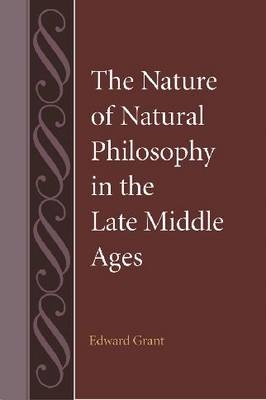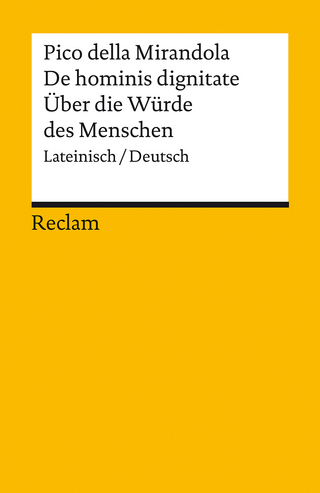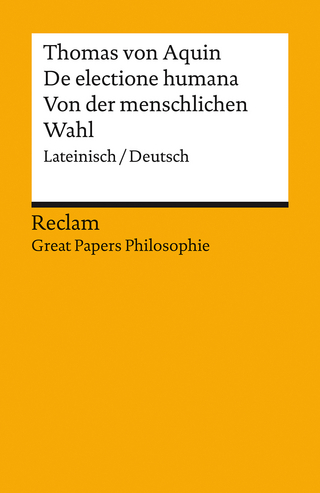
The Nature of Natural Philosophy in the Late Middle Ages
Seiten
2010
The Catholic University of America Press (Verlag)
978-0-8132-1738-3 (ISBN)
The Catholic University of America Press (Verlag)
978-0-8132-1738-3 (ISBN)
- Titel z.Zt. nicht lieferbar
- Versandkostenfrei innerhalb Deutschlands
- Auch auf Rechnung
- Verfügbarkeit in der Filiale vor Ort prüfen
- Artikel merken
Identifies the vital elements that contributed to the creation of a widespread interest in natural philosophy, which has been characterized as the 'Great Mother of the Sciences'. This title discusses how natural philosophy emerged in Western Europe in the Middle Ages with Christian religious authorities coming to accept and defend that philosophy.
The period from 1200 to 1500 laid the intellectual and institutional foundations for the Scientific Revolution that would occur in the seventeenth century. During this time, the spirit of inquiry motivated natural philosophers more than did substantive content or arguments. Natural philosophers posed hundreds of questions about nature and weighed the pros and cons of each. In the process, they developed a philosophical approach to nature that may be characterized as 'probing and poking around' - they used their imaginations guided by reason. In this volume, distinguished scholar Edward Grant identifies the vital elements that contributed to the creation of a widespread interest in natural philosophy, which has been characterized as the 'Great Mother of the Sciences'. He discusses how natural philosophy emerged in Western Europe in the Middle Ages with Latin translations of Aristotle's treatises on natural philosophy in the twelfth and thirteenth centuries; with universities devoting arts curriculums to Aristotle's rationalistic natural philosophy; and, with Christian religious authorities coming to accept and even defend that philosophy. Medieval natural philosophers, contrary to a common perception, did not slavishly follow Aristotle. Grant shows that they quite frequently disagreed with Aristotle and proposed their own solutions to many problems he raised. They did this by rejecting many of Aristotle's explanations about real physical phenomena and replacing them with radically different interpretations. The product of many years of extensive research, the essays included in this volume offer a significant contribution to the nature of natural philosophy and its influence on the Scientific Revolution of the seventeenth century. This title uncovers how reason and imagination in the Middle Ages laid the foundations of modern science.
The period from 1200 to 1500 laid the intellectual and institutional foundations for the Scientific Revolution that would occur in the seventeenth century. During this time, the spirit of inquiry motivated natural philosophers more than did substantive content or arguments. Natural philosophers posed hundreds of questions about nature and weighed the pros and cons of each. In the process, they developed a philosophical approach to nature that may be characterized as 'probing and poking around' - they used their imaginations guided by reason. In this volume, distinguished scholar Edward Grant identifies the vital elements that contributed to the creation of a widespread interest in natural philosophy, which has been characterized as the 'Great Mother of the Sciences'. He discusses how natural philosophy emerged in Western Europe in the Middle Ages with Latin translations of Aristotle's treatises on natural philosophy in the twelfth and thirteenth centuries; with universities devoting arts curriculums to Aristotle's rationalistic natural philosophy; and, with Christian religious authorities coming to accept and even defend that philosophy. Medieval natural philosophers, contrary to a common perception, did not slavishly follow Aristotle. Grant shows that they quite frequently disagreed with Aristotle and proposed their own solutions to many problems he raised. They did this by rejecting many of Aristotle's explanations about real physical phenomena and replacing them with radically different interpretations. The product of many years of extensive research, the essays included in this volume offer a significant contribution to the nature of natural philosophy and its influence on the Scientific Revolution of the seventeenth century. This title uncovers how reason and imagination in the Middle Ages laid the foundations of modern science.
Edward Grant is Distinguished Professor Emeritus of History and Philosophy of Science at Indiana University. The Foundations of Modern Science in the Middle Ages and Science and Religion, 400 B.C. to A.D. 1550: From Aristotle to Copernicus are among his many publications.
| Erscheint lt. Verlag | 30.4.2010 |
|---|---|
| Reihe/Serie | Studies in Philosophy & the History of Philosophy |
| Verlagsort | Washington |
| Sprache | englisch |
| Gewicht | 772 g |
| Themenwelt | Geisteswissenschaften ► Philosophie ► Philosophie des Mittelalters |
| ISBN-10 | 0-8132-1738-5 / 0813217385 |
| ISBN-13 | 978-0-8132-1738-3 / 9780813217383 |
| Zustand | Neuware |
| Haben Sie eine Frage zum Produkt? |
Mehr entdecken
aus dem Bereich
aus dem Bereich
Redewendungen aus der Natur
Buch | Hardcover (2024)
Regionalia Verlag
7,95 €
von der menschlichen Wahl
Buch | Softcover (2024)
Phillip Reclam (Verlag)
7,40 €


